Due to high temperatures and water scarcity issues, the size of this year's pome fruits has been significantly affected, says José Casas, from Frutas Ponti. "In terms of marketing, the winter has been quite challenging for apples because we are seeing a generally low demand. There is more demand for exports, but prices need to be very competitive, while packaging and transportation costs remain high."
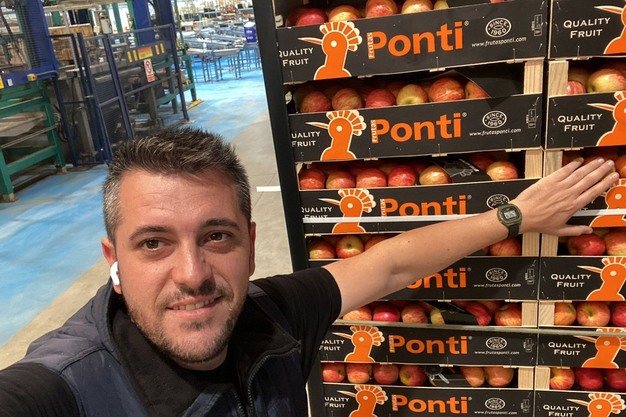
"The pear campaign has been going much better, as even though there hasn't been a large volume available, there has been significant international demand, especially from countries like Italy, which have been purchasing pears during and after the harvest season at quite high prices. And this trend is still ongoing."
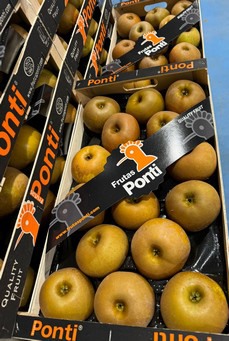 "At the start, they were buying all kinds of pears: Red Barlet, Williams, Abate Fetel and Conference, but during the winter they have been purchasing larger quantities of Conference pears, which are the most cultivated variety. In fact, at this point, only Conference pears are left, and Italy continues to buy them at high prices, making sales difficult at the national level," says José.
"At the start, they were buying all kinds of pears: Red Barlet, Williams, Abate Fetel and Conference, but during the winter they have been purchasing larger quantities of Conference pears, which are the most cultivated variety. In fact, at this point, only Conference pears are left, and Italy continues to buy them at high prices, making sales difficult at the national level," says José.
"Apple consumption is lower, with prices that have been high at origin, but not so much in the market." Frutas Ponti produces and markets Golden, Gala, Fuji and American red apple varieties, "which have a good market share. We see that club apples are increasingly gaining market share, but they still account for a minority of consumption. They are really good, have great advertising and many people appreciate them, but their selling price can be double that of a conventional apple and only part of the population is willing to pay for this more exclusive fruit. For instance, a family mother will likely continue to buy the traditional 1.5 or 2 kg bags of small-sized Golden apples, which are sold at very affordable prices."
"Brazil is one of the most important overseas markets for our stone fruit"
Frutas Ponti is a third-generation family business that was founded in 1950 by José Casas's grandfather, Salvador Ibarz Ponti, and is specialized in fruits; more specifically, in stone fruit. "The Bajo Cinca area, where we are located, is a region in Aragon bordering Catalonia, which has the advantage of starting about 7-10 days earlier than Catalonia, so our stone fruit hits the market just after Murcia and before Lleida starts, making it possible to take advantage of this very interesting period."
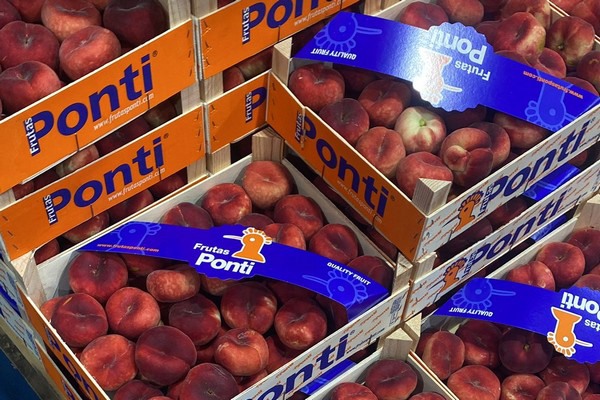
"We follow market consumption trends and work with the latest varieties. We are specialized in peaches, nectarines and Paraguayo peaches, which account for almost 80% of the fruit we market throughout the year, both through large European chains and overseas; a destination we have been developing in recent years, with Brazil as one of our most important faraway markets."
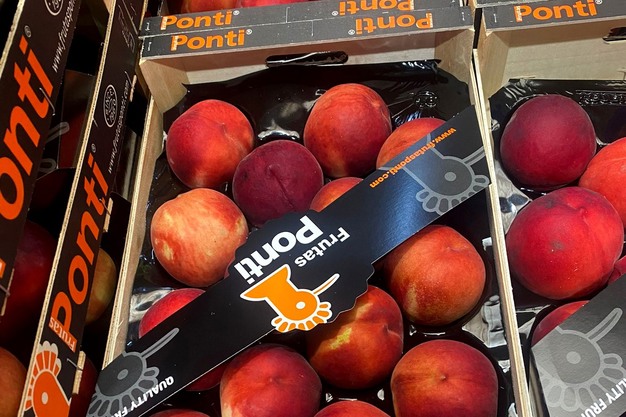
For now, it is hard to make forecasts, "but things are looking pretty good in the fields at this time. Our only concern is that the flowers might start to bloom already as a result of the rising temperatures, because when the flowering starts earlier, the risk of frost damage is also greater."
"However, for now, there haven't been any warnings of incoming cold, so we hope to start at the end of April with the first volumes of cherries and apricots."
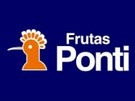 For more information:
For more information:
Frutas Ponti
C/ Fraga100
22528 Velilla de Cinca, Spain
+34 974 461 511
[email protected]
www.frutasponti.com










